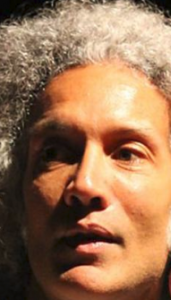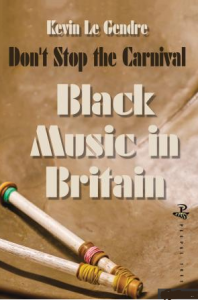
Rhythm & Blues: a vivid history



Kevin Le Gendre, Jazz expert, radio broadcaster, deputy editor of Echo and longtime music journalist, has produced a compassionate history of black British music. This is the first in a two-volume work beginning with the middle ages to the 1960s, which comprises the emergence of Jazz, Calypso and Ska and the genesis of the soul. This timely book to remind us of the massive contribution that the Windrush generation and the entire ethnic minorities across the centuries have made to Britain, amid accidental deportations of British citizens and black OAPs being held in exile on Caribbean islands and lost and then found landing cards.
We visit the Westminster festivities of Henry VIII and Catherine of Aragon in 1511, where black trumpeter John Blanke blown his horn on horseback while dressed in royal livery. We are treated to musical accomplishments of ex-slave and abolition icon Ignatius Sancho who composed scores in the European classical music and meet African-American Billy Waters, “ Peg-leg fiddler” and violinist who played in Covent Garden in the 1800s and was celebrated among audiences in Cornwall. We also see the Ethiopian Serenaders, who hailed from New Orleans, Samuel Coleridge-Taylor, who become the first internationally renowned black British composer and pianist Winifred Atwell, one of the few female jazz musicians to achieve mainstream success in the 1950s.
Le Gendre writes “ Although too much attention is paid to black soldiers who took up arms in defence of Britain during the great war, yet were not allowed to participate in victory parades when it ended. A black man in uniform carrying a rifle, a pistol or a bayonet is an essential part of the military history of the United Kingdom and it should be prominent in the national Psyche”.
Despite all these black musicians thrived, revelled and retaliated with music including Lord Kitchener’s carnival road march at the West Indian cricket team victory over England at Lord’s in the 1950s.
When SS Empire Windrush docked in Tilbury in June 1948, 42 per cent of Britons wanted to emigrate, yet the immigrants on home turf stretched beyond the discriminations of colour, Portuguese, Irish, Russian and Polish families were also affected. In London’s Notting Hill carnival the colour bar in local pubs contributed to the proliferation of shebeens and by association.
One West Indian from Nevis who’d settled in Leeds remarked in an interview with Le Gendre “ Even the churches were racist”. In 1950s Rhythm & Blues, a popular term for black music was initially known as “Race Music”.
Don’t Stop the Carnival: Black British Music is a story of empire, colonialism and subsequent energies released by movements for freedom and independence after the second world war, which describe music in vivid and meaningful ways.
Don’t stop the Carnival: Black British Music by Kevin Le Gendre, Peepal Tree Press £ 19.99, 320 pages.
